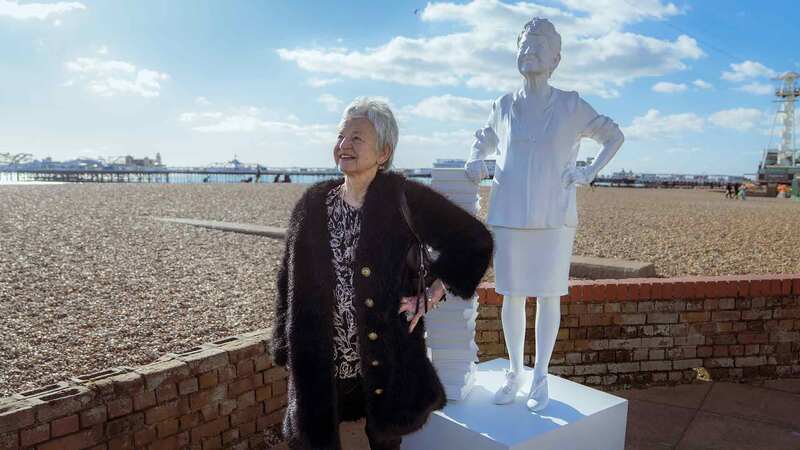You are viewing your 1 free article this month. Login to read more articles.
The disability pay gap
Last month, Penguin Random House released their disability pay gap report along with statistics for sexual orientation and socio-economic background. Whilst the publication of the report was positive, with PRH being the first publishing house to include disability in their reporting, the pay gap revealed was not so.
Out of the minorities mentioned, disability had the highest pay gap, revealing a far higher percentage of disabled staff in the lower quartile pay bands (25.2%) as opposed to the higher quartile (7.5%). It shows there’s still a long way to go in recruiting, retaining and promoting disabled talent.
Cat Mitchell, lecturer in writing and publishing at the University of Derby and author of disability in publishing research report Access Denied, welcomed the report, commenting that PRH should be “commended for the transparency of their plans to improve representation and feelings of belonging at the company”, whilst pointing out that more data is needed to explore the disability pay gap problem in order to find out where the issues causing the pay gap lie.
“For instance”, says Mitchell, “publishing jobs may not be attracting diverse candidates to apply in the first place, so the wording in job adverts, the accessibility of recruitment practices, and where jobs are advertised might need work. In addition, measuring any differences in the amount of time it takes employees to progress will show if there are issues and potential biases in promotion processes, or if underrepresented employees might not be getting the same opportunities or responsibilities as their peers.”
Sophie Terry, an MA in publishing student who has researched disability issues in publishing as part of her degree, said that she’s concerned the pay gap will deter disabled publishing hopefuls from applying. She comments: “Although I would love to say the pay gap doesn’t put me off entering the industry, I have to say otherwise. For disabled people with more needs and accommodations (i.e. travel expenses, mobility considerations/extra software) these wages may not be feasible when the industry is so prominent in central London.” She added that “more often than not, disabled people are forgotten when it comes to diversity and inclusivity, particularly where disabled entrants to the industry are left out of publishing schemes or their needs aren’t accommodated by employers.”
Val Garside, PRH’s HR director, described the strategies the company has in place to tackle the disability pay gap. These include introducing a new question to PRH’s survey to understand whether colleagues are happy sharing disability information at work in order to help the company “explore what the barriers might be for someone around being open about their disability”.
PRH has also introduced tailored adjustment plans to help disabled colleagues and those with long-term conditions identify with their manager barriers or difficulties at work and potential adjustments; joining the national Disability Confident Scheme, which offers “all disabled job applicants an interview if they meet the essential requirements for the role”; carrying out access audits of buildings “to identify where there could be barriers to disabled colleagues or guests”; and supporting the staff-led network AccessAbility for disabled, neurodiverse and chronically ill colleagues and their non-disabled allies.
Other publishing companies must follow PRH’s lead if publishing is truly to become an equal opportunities industry, says Dr Mitchell. She insists, however, that the trade needs to go further. “The best way to promote diversity in the workforce is to reimagine working practices altogether. For instance: increase salaries across the board, particularly for entry-level positions. Reduce the dependence on working outside of contracted hours, which is rife across the industry… more remote work experience placements, internships, and jobs should be on offer, including more part-time work and job shares. Opening regional offices outside of London would also be hugely beneficial.”
Sophie Terry agrees. “Publishers should be realistic and transparent when detailing their role requirements, not just in terms of pay, but also the accessibility and resources made available to applicants so entrants can decide whether to proceed with their applications. If the role requires an office-based environment, applicants must be made aware of whether the employers can ensure they’re able to get to the office or if there are suitable alternatives.”
Different ways of working brought about by Covid could provide a starting place for a new way of working. Says Mitchell, “As we continue to adjust to working in the pandemic, this is a perfect time to reimagine what work looks like, and as the largest publisher in the UK, PRH could be leading the way with this”.
Hopefully PRH’s disability pay gap report will encourage other publishing companies to follow suit and the industry as a whole to become fully equal opportunities employers, reflecting the demographic of their readers, and not allow disability to languish as the forgotten minority.
Penny Batchelor is the author of two psychological thrillers: My Perfect Sister and Her New Best Friend. She champions positive disability representation in fiction. Along with EC Scullion, Penny is the co-founder and editor of the Thriller Women blog which publishes interviews with female thriller writers.









